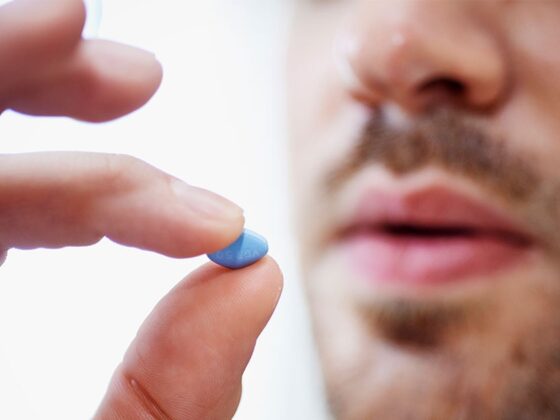Introduction
CBD has been gaining in popularity as a potential treatment for a variety of medical conditions, including autoimmune diseases. But does it actually help? Let’s take a look at what the research says about CBD and autoimmune disease.
There is some evidence that CBD may help to regulate the immune system and reduce inflammation, which could potentially be beneficial for people with autoimmune diseases. However, more research is needed to determine whether or not CBD is an effective treatment for this type of condition.
If you are considering using CBD to treat your autoimmune disease, be sure to talk to your doctor first. They can help you decide if it is the right course of treatment for you.
What Is CBD?
You might be wondering, what is CBD? CBD, or cannabidiol, is one of the many cannabinoids found in cannabis. It’s the non-psychoactive component of marijuana, meaning it doesn’t get you high.
CBD has a host of potential health benefits, which is why it’s become so popular in recent years. Some people use it to help with anxiety and depression, while others use it to treat chronic pain and autoimmune diseases.
What Is an Autoimmune Disease?
Doctors aren’t completely sure what causes autoimmune diseases, but they do know that when the body’s immune system goes haywire, it starts attacking healthy cells as if they were foreign invaders. This can lead to a wide range of problems, from joint pain to type 1 diabetes.
There’s no one-size-fits-all answer for treating autoimmune diseases, but some people have found relief by using CBD. CBD is a cannabinoid derived from cannabis that doesn’t get you high like THC does, and it’s been shown to help regulate the immune system.
Researchers are still exploring the potential benefits of CBD for autoimmune diseases, but so far the evidence looks promising. If you’re struggling with an autoimmune disease, it might be worth giving CBD a try.
What Does the Research Say About CBD and Autoimmune Disease?
CBD oil is all the rage these days, and you may be wondering if it can help with autoimmune disease. So what does the research say?
There’s not a lot of scientific data on the subject yet, but what we do know is that CBD seems to have anti-inflammatory properties. This is promising, because inflammation is thought to play a role in autoimmune disease.
There’s also some evidence that CBD may help regulate the immune system. This is key, because autoimmune disease occurs when the immune system starts attacking healthy cells and tissues by mistake.
So far, the evidence is still preliminary, but it’s enough for some people with autoimmune disease to give CBD a try. You should talk to your doctor before making any changes to your treatment plan.
How Can CBD Help With Autoimmune Disease?
There’s a lot of anecdotal evidence that CBD can help with autoimmune diseases, but what does the research say?
Well, according to a study published in the Journal of Immunology, CBD was able to reduce inflammation in mice with autoimmune disease. And another study, published in the European Journal of Pharmacology, found that CBD helped suppress the immune system and reduce inflammation in rats with autoimmune encephalomyelitis, which is a type of brain inflammation.
So it looks like CBD may be able to help with autoimmune disease by reducing inflammation and suppressing the immune system.
What Are the Side Effects of CBD?
CBD is a natural remedy with a lot of potential benefits, but like any other treatment, it has the potential to cause side effects. Most of the time, these are mild and temporary, but it’s important to be aware of them before you start taking CBD.
The most common side effects are dizziness, dry mouth, and drowsiness. Less common side effects include changes in weight, diarrhea, and changes in blood pressure.
If you’re taking other medications, it’s important to speak to your doctor before you start using CBD. There could be interactions between the two that could cause problems. And finally, if you’re pregnant or breastfeeding, it’s best to avoid CBD altogether.
How to Take CBD for Autoimmune Disease
When it comes to CBD and autoimmune disease, there’s still a lot of unknowns. But that doesn’t mean people with autoimmune disease shouldn’t give CBD a try. In fact, many people report that they feel better when they take CBD.
So how should you take CBD if you have an autoimmune disease? It really depends on the individual, and what works for one person might not work for another. Some people find that taking CBD oil is the best way to go, while others prefer to take CBD in pill form or as a vape.
There’s no one-size-fits-all answer here, so you’ll just have to experiment until you find what works best for you. And keep in mind that it might take some time to figure out the right dosage and the right way to take CBD for your specific condition. But it’s definitely worth it to find out if CBD can help improve your quality of life.
Conclusion
CBD oil has been shown to be effective in reducing inflammation and pain in autoimmune diseases, and it’s a natural alternative to the harsh prescription medications often prescribed.
Autoimmune diseases are on the rise, and they can be incredibly difficult to treat. While there is no one-size-fits-all cure, CBD oil has been shown to be a promising treatment for inflammation and pain associated with these diseases.
If you’re looking for an alternative to prescription medications, CBD oil may be the right choice for you. Talk to your doctor to see if it’s right for you.









